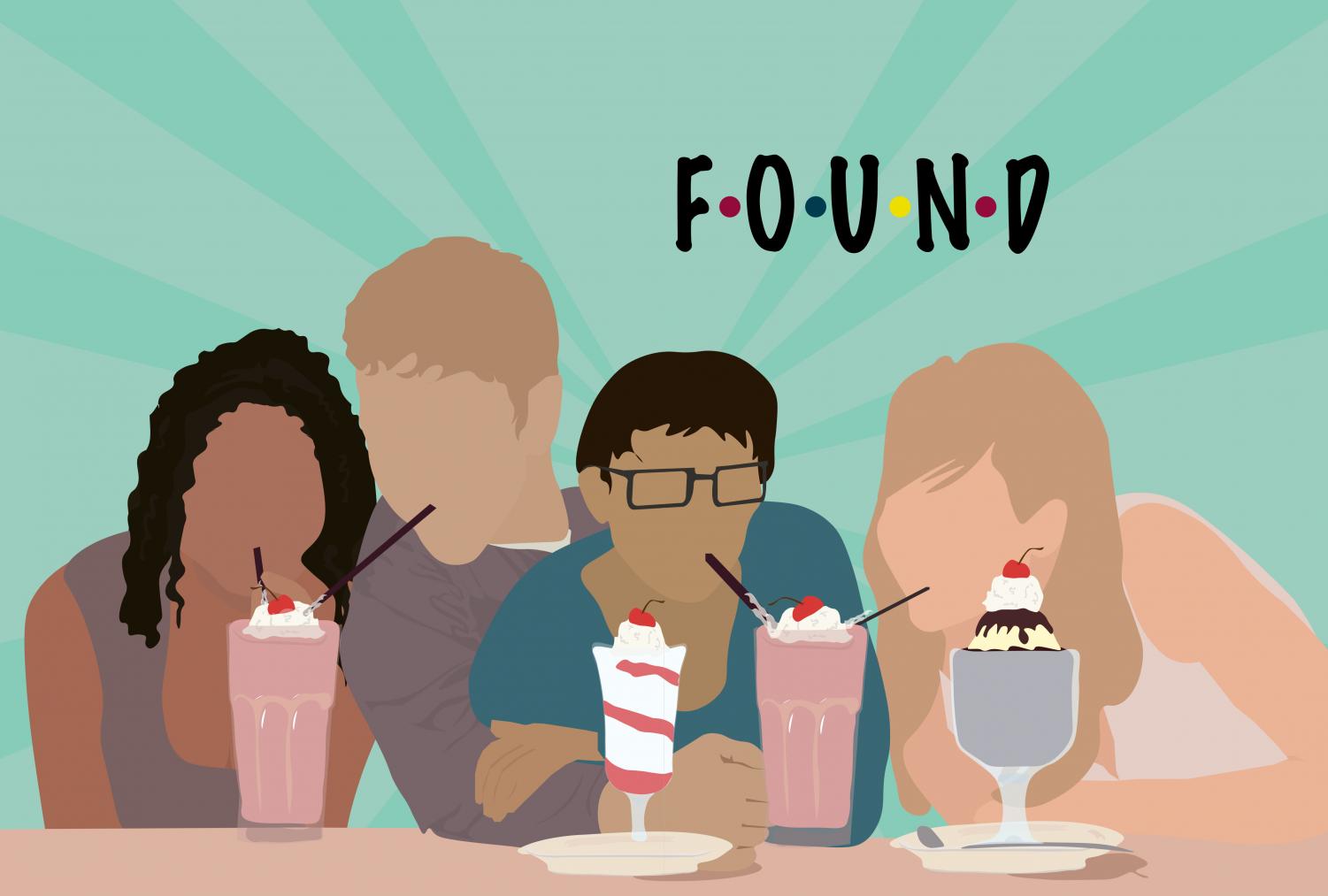Your donation will support the student journalists of Carmel High School - IN. Your contribution will allow us to purchase equipment and cover our annual website hosting costs.
With upcoming holiday season’s focus on family, community, students, teachers review what constitutes a “family bond,” how relationships develop
December 13, 2021
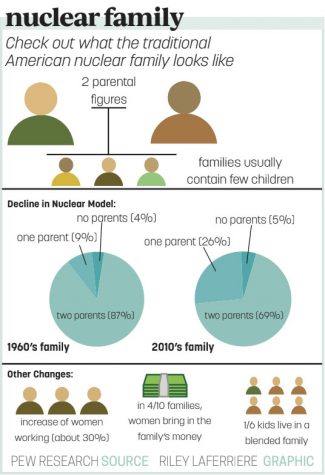
Starting from a summer training camp to late-night rehearsals, Ella Glowacki, Accents member and sophomore, spent countless hours practicing and being with her fellow Accents members, forming irreplaceable friendships.
“Everyone (in Accents) is super nice. My closest friends are in choir with me, and even people who aren’t in my grade, I’m close with them too. Everyone’s just super kind and supportive, and I just love being a part of it,” Glowacki said.
At CHS, an expansive selection of extracurriculars is available to students. Students are involved in many activities ranging from academic to social, from athletic to volunteer. For many students who are involved in these extracurriculars, like Glowacki, the time dedicated to these extracurriculars has contributed to a familial bond with the extracurricular’s members. Societally, most people spend the months surrounding the holiday season celebrating their families and giving thanks, but for many students, they also celebrate the family-type bonds they have developed outside of their homes.
Clay Richards, basketball player and junior, said he shares a sentiment similar to Glowacki’s about his teammates. Richards said he has been playing with some of his friends on the basketball team since second grade and throughout the years, he has developed a connection with players on his team.
“Our locker room presence is great. We all get along, and there’s no tension,” Richards said. “Especially with guys I’ve been playing with for a long time, our chemistry is through the roof.”
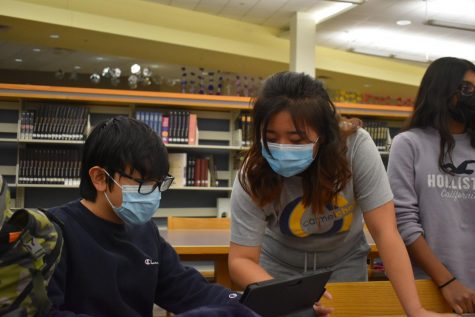
Richards said he is also a member of Senate, which helped him adjust to the CHS community when he was still new to the school.
“My freshman year, (being in Senate) was very good. I felt like a little fish in a big sea being a freshman at CHS, but some of the upperclassmen in Senate really helped me find what I like to do here,” he said. “Yogi Rao was a junior when I was a freshman; he and I formed a really good bond over the two years (we spent) in Senate together. I still keep in touch with him everyday.”
Richards said he was able to easily adjust during his first year due to his experience in Senate; however, Glowacki said she did not always feel as included as she does now.
“Especially (during my) freshman year, there are just so many people (in choir) that you feel like you get lost with all the different girls, but then as you grow and move into different choirs you sort of find your own place,” Glowacki said. “Joining (Accents), I was a little nervous because I thought in an all-girls choir, people would be catty and mean to each other, but everyone has been so nice. It’s been absolutely drama-free, and I’m not afraid to talk to any of these people.”
Swimmer and senior Varsha Chandramouli, who has been swimming since third grade, said that like Glowacki, she had felt unsure if she belonged at one point.
Chandramouli said, “In sixth or seventh grade, I didn’t really know many kids since I’m at this weird age where for half (the season), the people I would swim with moved up because they age out, and younger people than me moved in, so there wasn’t really a consistent base of people in my groups. I felt like I didn’t know people for that long.”
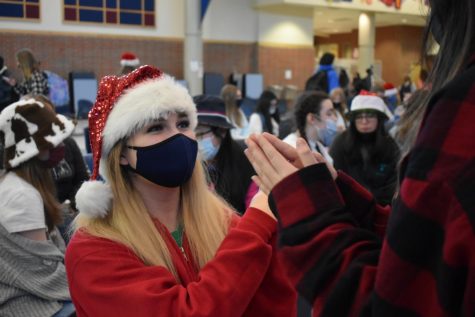
“As a freshman coming into the team, I was surprised because it was definitely more of a team atmosphere than I thought,” she added. “In middle school, it was just practicing together, but on team, there are bonding events, and there’s more of an emphasis on the team bonding aspects. We see each other way more, so I definitely felt like it was more of a family. It was especially really good as a freshman going into high school to have that connection, that support system,” she said.
Chandramouli said she is a member of both the Carmel Mayor’s Youth Council (CMYC) and symphony orchestra. Chandramouli said, “I like being a part of different (multiple activities) because I feel like being able to see all the different communities that you are a part of is really important.”
For Glowacki, Richards and Chandramouli, the extracurriculars they are involved in take up hours and hours of time, which can lead to creating that family atmosphere. Glowacki said while practicing for the Holiday Spectacular, she spent many long nights rehearsing, singing and dancing alongside her choir family. Richards said basketball practice is six days a week, from 4:30 to 7 p.m.
“When we have games, we don’t get home until 10 p.m. to midnight, depending on where we play at,” he said.
Chandramouli said, “In the holidays, swimming picks up and so does orchestra for (the Indiana State School Music Association competition). I end up spending more time with my families here (at CHS) than my biological family.”

In some cases, bonds also form among specific people within an activity. Cynthia Henry, sponsor of Science Olympiad, said students must work extensively with one or two other people in a certain competition in order to be successful.
Henry said, “To have a successful team, partners have to work very closely together and they have to know each other fairly well because when it’s time to take a test, they only have fifty minutes and they have to understand a lot ahead of time, (like) who’s gonna do what part of the test and how they’re gonna do it. How they work together and knowing what each other knows is very important.”
According to Henry, how much students need to coordinate with one another in Science Olympiad varies by event, with some hands-on events requiring spending much more time together.
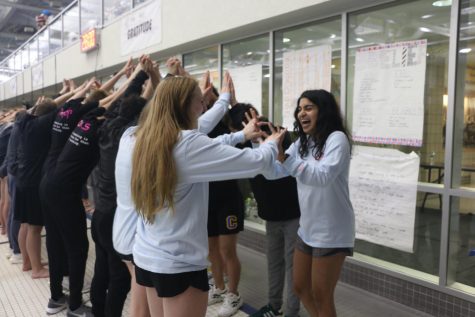
she and other swim team members make
a path to honor senior members. She said
the team provides a support system, but is
not the only thing that defines her. (Darshini Shankar)
“Some events that are testing events where they know the material very well, the students don’t have to meet up as much. While in WIDI, or -Write it Do It,- when they come into the event, they see a structure and they have to describe and write down on paper how to build that with the materials given,” Henry siad. “Then, they leave and their partner comes in and they’re given the materials and the piece of paper and they have to build it. That one’s much more important that partners work together often so they understand how one writes and how the other builds.”
For these students, time spent together builds connection. Wrestling Head Coach Edward Pendoski said he believes there is another aspect that builds relationships: hardship. According to Pendoski, the shared difficulty and equality of wrestling also foster a sense of brotherhood among athletes on the wrestling team.
“I don’t know of any other place I’ve ever been besides a wrestling room where everyone is the same. There isn’t a rich kid, a poor kid, a black kid, a white kid: we’re just all wrestlers,” Pendoski said. “I think wrestling is like a cult. No matter where you go, once you’ve wrestled, you’ve always been a wrestler. By the time a season starts to the end of the season, everybody on the wrestling team is very, very close. It’s the physical and psychological stuff that we go through. If this guy next to you can do the same things you’re doing, he’s your brother.”
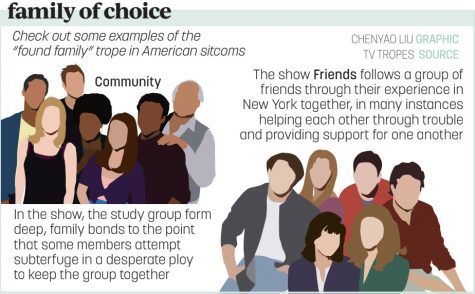
Something Glowacki, Richards and Chandramouli said they had in common was joining a CHS family during their freshman year. With every ninth grade student being new to this school, the year can be seen as important to find communities and opportunities within the school.Freshman David Jiang said he is still finding his CHS family. In middle school, Jiang went to Sycamore School, a private school from kindergarten to eighth grade in Indianapolis. However, Jiang said he was not accompanied by many of his friends at Sycamore when he came to attend CHS.
He said, “I’d say there are maybe five or six people from Sycamore in my grade. I remember in the Sophomore Class of this year, there were a ton of people who joined (CHS), like 30, all of them from Sycamore—the entire list going down was just CHS, CHS, CHS. But for us, we only had six because a lot of them went to (other schools, such as) Brebeuf and Park Tudor.”
Jiang said he is a member of Debate Club, Math Club and Key Club, and although he said he believes he has not created many deep connections, he said he can see himself joining a family at CHS.
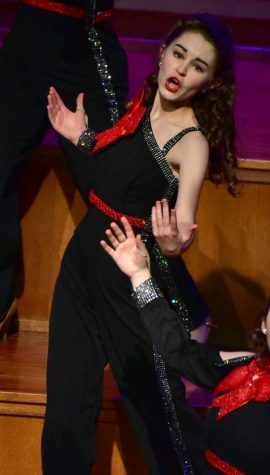
“I think a lot of people that I’ve met in these clubs—not even just friends that I had before—more so people I hadn’t talked to at all before going to these clubs. Just randomly during it, we would talk,” he said. “It felt like the clubs really joined us together, especially the team-based competitions such as Debate and Math; you definitely feel you have more of a connection there with your teammates.”
Building a home away from home at CHS does not only occur through extracurriculars. Science teacher Eric Rauch said he likes to consider his classes the “AP Bio Family.” He said he views his students like his own children.
“I consider my class a family because I want (my class) to be an open and honest discussion, always. If kids have questions, I want them to be able to come and ask me; I hope my kids at home do the same thing,” Rauch said. “I think one of my goals as a teacher is to be the face in front of my kids every day. If I can be the teacher that I’d expect to be in front of my kids at their school, then I’m giving my students the proper forum to feel free to learn new things, discover new things and ask questions.”
Many students said they respond well when they have a support system at CHS. For students, like Glowacki, Richards and Chandramouli, have established friend groups through their extracurriculars acted as a support system during their freshman year. For Jiang, Debate and Math club are have helped acclimate to CHS.
Rauch said he wants to help establish a strong support system for his students both inside and outside of his classroom.
Rauch said, “The most important thing is caring about each kid like they are your own and also having tough conversations. Rather than just saying, ‘you didn’t do well,’ I say ‘OK, maybe we didn’t perform at the level we wanted to because of blank.’ Find the solution, troubleshoot together: it’s not just a kid on an island trying to figure it out.
“I think that the relationship is really important too. I try to get to know them like they are my kids. Obviously, I don’t know them as well as I know my kids at home, but that doesn’t mean I am not interested in what’s going on,” he added. “And I think that does go a long way when someone does have trouble. They are more likely to come into SSRT and ask questions, ask questions in class or even email me. A lot of the time the questions don’t have anything to do with biology. If I can provide that family-like atmosphere, I’m totally good with it.”
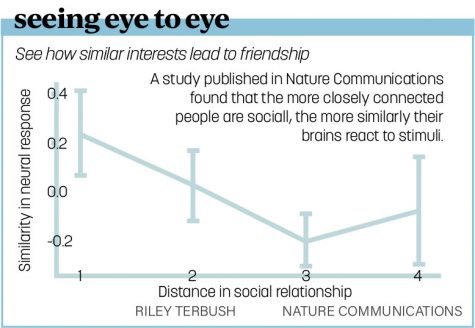
Rauch said he gets amazing feedback from his students and their families about the warm family-like environment developed within his classroom.
“It’s mind-boggling sometimes how much they appreciate it. The comments I get when I do my check-ins, the comments I receive in the hallway, the number of comments and emails I get from parents even just blows my mind,” Rauch said. “I feel like the way students interact with me is different than it was from when I only taught to distribute information. Hearing kids say they’re comfortable coming to me, that response is what has changed my view on what teaching is.”
The connections formed during high school have often persisted into college and beyond. Pendoski said he still keeps in touch with many other wrestlers and CHS alumni due to his time in wrestling.
“I think (in) the family (developed in) wrestling, what’s really neat about it is that it never ends,” he said. “It’s not what you do, it’s who you are. Even now, I’m 50 years old and I’ll go somewhere and someone will (say to me) ‘You wrestled,’ and I’ll go ‘Yeah, you did too.’ There’s still that bond from somebody that’s just some random person you see somewhere. The wrestling people all say to wrestling people ‘Where’d you wrestle?’ because you can tell just by looking at them. (The conection is) not something that ends when you stop competing or quit playing the sport. Wrestling isn’t something you do and it’s who you are. It never ends and I personally love it.”
